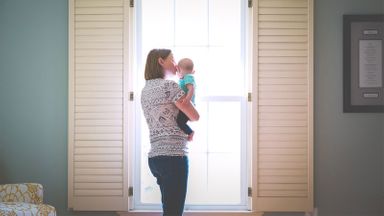
As a real estate agent, a frequent question I get from clients is, “Do I need renters insurance?” My answer is always yes.
Whether you rent a house or a 300-square-foot studio, think about everything inside it — from furniture to electronics to shoes — and how much it would cost to replace it all. A lot of money, right? That’s where renters insurance comes in. And with an average cost of $187 a year (that’s less than $16 a month) it’s a small price to pay for protecting some of your most important possessions.
It should be a no-brainer, but only 41% of tenants have renters insurance, according to a recent poll.
But just like auto or health insurance, renters insurance does have limitations depending on the type of policy and the provider. Here’s what to know to make sure you’re covered.
WHAT RENTERS INSURANCE COVERS
Personal Property Loss, Theft or Damage
If your personal property is lost, stolen or damaged, a standard renters insurance policy will cover it (up to a certain limit).
Renters insurance comes in two varieties. There are “cash value policies,” where the insurance company reimburses for what they estimate your belongings are currently worth, or there are more comprehensive “replacement cost coverage policies,” where your provider reimburses you the amount it will cost to replace the item with a new one of like kind and quality. (Read: That sofa you paid $1,000 for might only be worth $300 without replacement cost coverage.)
To effectively protect your valuables, you should create an inventory of your possessions that includes brands and models, dates purchased, serial numbers and receipts. You can keep these in your own records, or with your insurance provider. Allstate, for instance, offers a free “digital locker” where you can store your inventory securely in a cloud.
Personal Liability
Typically, renters insurance covers a tenant’s liability in the event that a visitor or worker is injured on the premises, up to the limit set on your policy. So if a guest or handyman falls in your apartment and the injury is deemed to be your fault, that person can file a liability claim with your insurance company to cover their medical costs. With coverage, you aren’t on the hook for the bill — your policy pays it. Renters liability insurance would also pay for your legal defense. And some liability coverage policies extend to accidents outside of your home, such as in your backyard.
Most insurance policies come with at least $100,000 of liability protection. For additional coverage, you can also buy an umbrella or excess liability policy, which cost between $200 and $350 a year for an extra $1 million of liability protection.
One caveat: Renters insurance doesn’t offer protection if you get injured at home; it only applies to visitors.
Damage to Someone Else’s Property
Most renters insurance policies will also cover you if you — or your pets — damage someone else’s property. So if your dog accidentally destroys your neighbor’s new couch, your policy will reimburse them. Limits can range, so check with your provider.
Temporary Accommodations
Let’s say your apartment is damaged during a hurricane and deemed uninhabitable. Generally, renters insurance will cover your housing costs if your home is damaged and you have to live elsewhere while repairs are being made. Hotel bills, restaurant meals, and other expenses are covered under “additional living expenses” until you can move back into your apartment. Some policies even cover laundry costs or pet boarding. Just be prepared to provide receipts when filing a claim.
WHAT RENTERS INSURANCE DOESN'T COVER
Standard renters insurance does not cover floods, so renters (and homeowners) must purchase flood insurance through the National Flood Insurance Program. The average flood insurance policy costs $700 annually, but costs can vary significantly depending on a house’s value and whether it’s located in a high-risk zone. (You can look up the risk of flooding for your address and get quotes at FloodSmart.gov.)
Most policies don't cover loss or damage of super high-value property, like fine jewelry or art. So, if you’re looking to protect your diamond engagement ring, you should probably seek extra coverage by buying a rider or floater on your policy.
And if you have a home business, equipment such as computers and printers are typically not covered — although some providers may allow you pay a premium for additional coverage.
Take the next step.
Your advisor will answer your questions and help you uncover opportunities and blind spots that might otherwise go overlooked.
Let's talk






